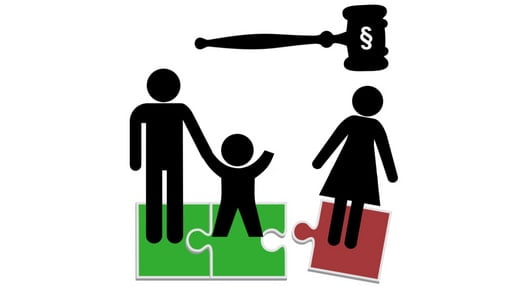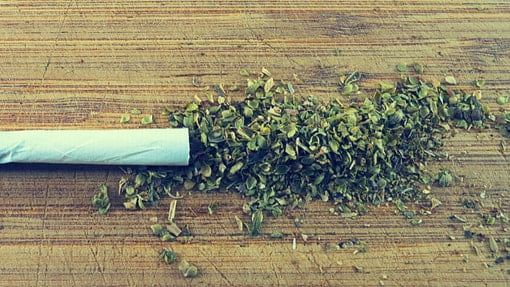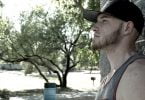Family Addiction and Abusive Relationships
Growing up Aline was a troubled child, dealing with active family addiction.
NIH data shows over 10 percent of children in the U.S. were living with an alcoholic parent in 2012.

When it comes to family addiction and alcoholism in the home, there is a direct connection to violence as well as child abuse.
During her adolescent years, Aline endured physical, emotional and verbal abuse from her father who is an alcoholic and still abusing alcohol to this day.
A direct link connects alcoholism, violence and child abuse in the home.
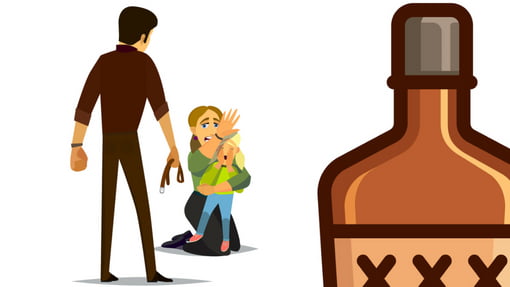
NCADD reports that over 40 percent of child abuse cases occur when the abuser is drinking at the time.
In addition to the violence that occurred against her, Aline also witnessed her mother being abused.
Family Roles in Addiction
At the age of 12, Aline’s mother finally divorced her father, relieving her from the domestic violence and abuse.
Although she was free from the unsafe and violent environment, Aline eventually turned to substance abuse herself.
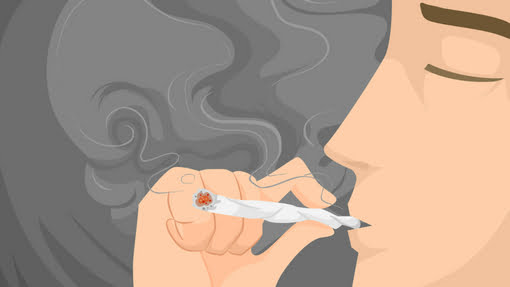
NCADD studies indicate that family addiction and members who witness maternal caregiver abuse are 50 percent more likely to engage in abuse of alcohol and drugs.
Throughout her grade school years, Aline had difficulty in school. In high school, Aline spent time with her friends partying by getting high on drugs and drinking alcohol.
At 17, her behavior resulted in a long-term suspension from school, which took place after being arrested on campus for marijuana possession.

Approximately, 1.9 million out of 2.4 million juvenile crimes and arrests involve addiction and substance abuse.
Aline’s arrest not only got her suspended from school, but she was put on probation for criminal weed possession.
Drug Addiction and Trauma
During her junior year of high school, her mother lost their apartment and they were forced to move.
Soon thereafter Aline was up against resubmission to her alcoholic father’s domestic violence.
Research shows that domestic violence and experiencing childhood trauma increases a person’s predisposition and risks of drug addiction.
After fighting from child custody, Aline’s father won, and she moved back in with her abusive alcoholic parent.
After moving in with her father, Aline’s drug use escalated, and she overdosed on spice, a synthetic cannabinoid also known as ‘fake weed.’
Substance Abuse and Mental Health
Having psychological trauma commonly identified as PTSD is all too familiar among women with substance use disorders and addiction.
Living with PTSD and addiction or any other mental health disorder is referred to as dual-diagnosis.
Dual-diagnosis or co-occurring disorders require specialized treatment that meets a person’s individual needs.
If you or someone you love is suffering from alcoholism, drug addiction and/or trauma, there is a better way of life.
It’s common for family addiction, dysfunctional roles and unhealthy dynamics to fuel or even start the progression of mental health disorders as well as the disease of addiction.
NA Meetings and Finding Recovery
One day, Aline started a conversation with a woman who was in the park near her home. The woman she talked to that day steered her in the direction of 12-step program recovery.
Committing to recovery, Aline attended the same 12-step meeting every week on Wednesday.
It didn’t take long before Aline became employed, and after regularly going to meetings and working hard at her job, Aline was able to buy her first car.

After buying a car, Aline began going to Narcotics anonymous, otherwise known as NA meetings.
Through NA, Aline developed coping mechanisms and learned the skills she needed to keep her from using drugs to get high.
In sharing her experiences in life, Aline stresses that working on herself is a life-long process; she states that she is still an addict and always will be.

Aline gives credit to NA for saving her life and she finds it necessary to give back in the recovery program.
Recovery has given Aline a life worth living. Anyone who is struggling with addiction can heal and live a life of recovery.
Are you ready to give up a drug and alcohol-centered life or simply looking to help someone else struggling with addiction?
There is help available and we are here to guide you in any way possible. Feel free to contact us to get moving in the path of addiction recovery.

